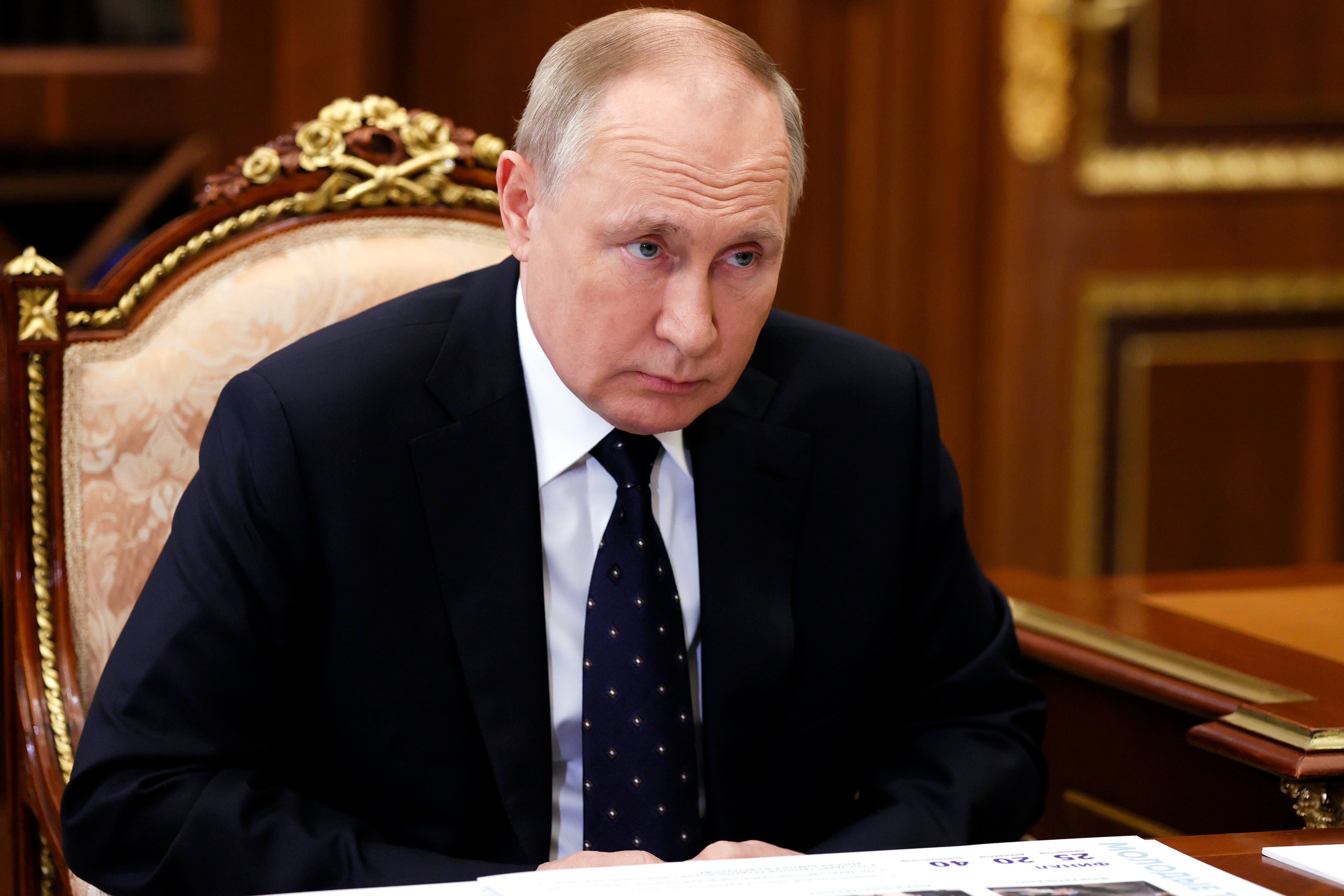Russia’s current position of relative economic strength may be short-lived
The reliance on oil and gas is currently a strength but as the world gradually switches away from carbon fuels, it will become less so, writes Hamish McRae


Could economic sanctions really damage the Russian economy, were there to be an invasion of the Ukraine? The most likely answer is not much. In the short term, Russia is strongly placed. But in the longer run, Russia is actually much weaker than it seems and facing a very difficult future over the next 30 years.
It isn’t helpful to speculate here about what Russia might do in the next few weeks, or the details of the response of the west. That is for the political and military strategists. But there are some basic economic realities that will not change much, whatever Russia does, and the first of those is the country’s reliance on oil revenues to fund the government.
Right now, that is very good news for Russia. Oil and gas revenues supply about one-third of the government’s income. It has budgeted for an oil price of around $45 a barrel. The current price of around $86 a barrel is nearly double that. If the Russian rouble were to fall vis-à-vis the dollar due to sanctions, this would actually increase the value of revenues in rouble terms. The surge in gas prices has been even greater than that of oil, so provided Russia can still find markets for its oil and gas, it has the money to fund whatever it chooses to do.
Might Russia find it harder to sell its oil and gas? Not really. China is the world’s largest importer of oil and in 2020, its second largest supplier, just behind Saudi Arabia, was Russia. It would be naïve to think that China will buy less oil because of something the west does. In any case, Europe is desperately reliant on Russia for gas, as the row over the new gas pipeline down the Baltic from Russia to Germany, Nord Stream 2, shows. The pipeline is complete, and Germany and the EU are under pressure to halt its commissioning. But Europe needs the gas, so the power is with Russia – particularly since the main alternative pipelines run through the Ukraine. Indeed, 16 per cent of Europe’s gas supplies come through that country.
There are other sanctions that could in theory be brought, such as excluding Russia from the SWIFT international payments system, which is based in Brussels. But that would be a double-edged sword, for Europe has to pay Russia for its gas somehow. In any case, German reluctance to supply even defensive weapons to Ukraine makes it clear that it would resist serious financial sanctions on Russia.
So, in the short term, Russia has a strong hand. But if you look several years ahead, a rather different picture emerges. The central point is that Russia’s population is falling, and projected to fall further. The central estimate of the United Nations is that it will decline from its present 146 million to 136 million by 2050. It is already a little lower than it was in 2000. The size of the key working population, aged from 25 to 64, is projected to fall from 83 million in 2020 to 73 million in 2030.
To keep up to speed with all the latest opinions and comment, sign up to our free weekly Voices Dispatches newsletter by clicking here
There are other structural weaknesses. The reliance on oil and gas is currently a strength but as the world gradually switches away from carbon fuels, it will become less so. For obvious reasons, Russia struggles to attract immigrants from the west, while many of the more ambitious of its citizens choose to emigrate, often to the UK. For example, the Revolut banking app was set up in London by two Russian entrepreneurs, Nik Storonsky and Vlad Yatsenko. It has become one of the highest-valued financial technology companies in the world.
But the main concern for Vladimir Putin is something broader. Russia is slipping down the global league table in terms of the size of its economy. Back in 2018, Russia was the 11th largest economy in the world. By 2030, according to projections by HSBC, its economy will be down to 13th position, about the same size as that of Australia. Unlike China, whose weight is growing in the global economy, Russia is falling back. Insofar as aggression in Europe deters inward investment, what President Putin is doing is likely to speed up the country’s relative economic decline.
The danger for Russia is that it simply isn’t a big enough economy to control a country with the world’s largest land area. It will not have enough people or enough wealth to do so.



Join our commenting forum
Join thought-provoking conversations, follow other Independent readers and see their replies
Comments